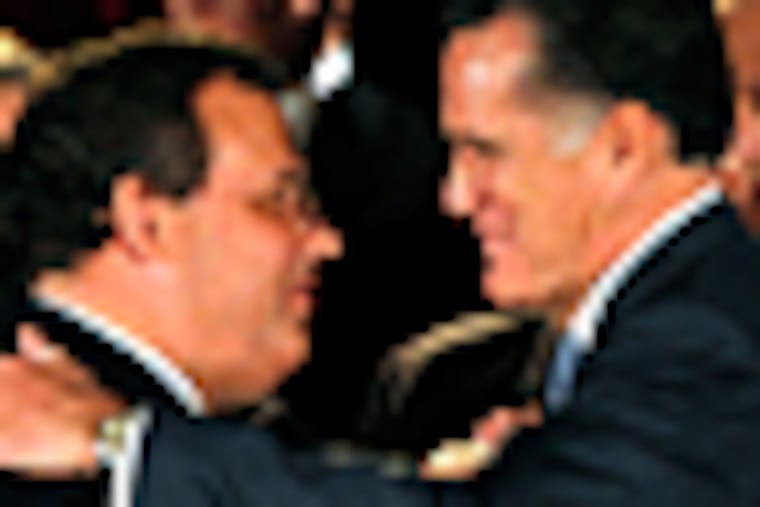Romney tailors strategy to Gingrich surge
WASHINGTON - With the Iowa caucuses nearing and Newt Gingrich surging, Mitt Romney's campaign strategies appear to be flagging in the Republican presidential race. He's starting to adjust.

WASHINGTON - With the Iowa caucuses nearing and Newt Gingrich surging, Mitt Romney's campaign strategies appear to be flagging in the Republican presidential race. He's starting to adjust.
A new Associated Press-GfK poll finds Republicans aren't buying Romney's chief argument: that his private-sector, non-Washington background makes him a better candidate than does Gingrich's three decades in the capital. Romney, the former Massachusetts governor, also has been unable to convince Republicans he is more conservative than Gingrich.
Romney and his aides are starting to revamp. They know they must get voters' attention before the Jan. 3 Iowa caucuses and the Jan. 10 New Hampshire primary.
In recent days, Romney's campaign has highlighted Gingrich's departures from conservative paths, subjected its own candidate to greater media scrutiny, and emphasized the less-flattering aspects of Gingrich's Washington experience.
In essence, Romney is saying Gingrich has the wrong kind of Washington experience: cutting unwise deals with Democrats, letting power go to his head, and cashing in on his name and contacts after leaving Congress. The revised strategy is playing out in TV ads, e-mail, and comments by Romney and his surrogates.
For instance, Romney aides say they will make greater use of a 2008 video in which Gingrich appeared with then-House Speaker Nancy Pelosi (D., Calif.) to discuss climate change. They also are employing GOP officials who worked with Gingrich in the mid-1990s to argue that he was an erratic, unreliable leader during his four years as House speaker.
They hope the tactic might reverse the trend in polls that show Gingrich ahead of Romney, nationally and in early-voting states. The AP-GfK poll found Gingrich with an edge, but just within the margin of error.
"Gingrich is not nearly the conservative that everybody thinks he is," said Mike McKenna, a Republican lobbyist and strategist unaffiliated with the presidential campaigns. ". . . Romney doesn't need to prove he's the authentic conservative. He just has to cast doubt on whether it's Gingrich."
But Romney has trouble proving his own conservative credentials. During his time in Massachusetts, he supported legalized abortion, gun control, and gay rights. He changed those positions before his first bid for president, in 2008.
Gingrich, 68, spent 20 years in the House, the last four as speaker after leading the Republican resurgence of 1994. He left Congress in 1998 under an ethics cloud, after sharp clashes with GOP colleagues. He then earned millions of dollars as a Washington-based consultant, speaker, and writer. Gingrich, too, has changed positions on some issues, including how to address climate change.
The AP-GfK poll and other surveys of Republicans give Romney a clear edge on which contender has the better chance to beat President Obama next year.
Romney's revised strategy calls for pointedly questioning Gingrich's conservatism and highlighting the seamier aspects of his time in Washington. Romney allies hope to provoke Gingrich into an outburst that will raise doubts about his stability or judgment.
Romney recently called on Gingrich to return the $1.6 million he made as a consultant to Freddie Mac, the quasi-government mortgage giant that many conservatives dislike. Gingrich in turn said Romney should give back the millions he made as head of Bain Capital, a venture-capital firm that sometimes laid off employees as it reorganized struggling businesses. To Romney's delight, some conservative commentators questioned Gingrich's faith in capitalism.